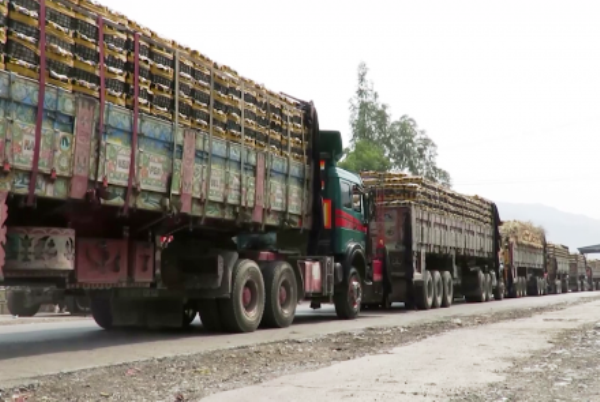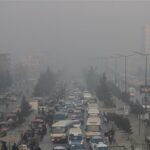The Ministry of Industry and Commerce reported that in the first eight months of the current solar year, Afghanistan’s trade with regional countries amounted to $8.363 billion.
The ministry’s spokesperson emphasized that out of this total, $1.172 billion were exports.
During this period, Afghanistan’s primary export destinations included Pakistan, India, Iran, the United Arab Emirates, Uzbekistan, Kazakhstan, China, Turkey, Iraq, and Tajikistan.
Akhundzada Abdul Salam Jawad, the spokesperson for the Ministry of Industry and Commerce, stated: “Afghanistan’s trade during the first eight months of 1403 (solar year) reached approximately $8.363 billion, including $1.172 billion in exports and $7.191 billion in imports.”
Meanwhile, the Chamber of Commerce and Investment considers Central Asian countries a suitable market for Afghanistan’s agricultural products. It emphasizes the need for more trade and transit agreements to boost exports.
Khanjan Alokozay, a member of the board of directors of the Chamber of Commerce and Investment, said: “We have exports, but they are limited in other countries. A trade route to Moscow must be established. Efforts are underway to make the Moscow market more accessible and closer by addressing transport and transit issues that involve crossing through three or four countries, which could be resolved through a multilateral agreement.”
On the other hand, the Chamber of Agriculture and Livestock believes that supporting farmers and providing more facilities to traders would increase domestic production and create additional opportunities for exports.
Mirwais Haji Zada, the deputy head of the Chamber of Agriculture and Livestock, stated: “Exports to foreign countries like India, and especially China, should increase.
Russia and Kazakhstan are also excellent markets. We have been exporting through Uzbekistan, but this route occasionally faces logistical challenges. Exports should also be facilitated via waterways, with proper coordination with road transport.”
According to data from the Ministry of Industry and Commerce, Afghanistan’s top exports during these eight months included fresh and dried fruits, cotton, heng, and coal. Its major imports consisted of petroleum products, flour, rice, vehicle spare parts, machinery, textiles, liquefied gas, and cement.













